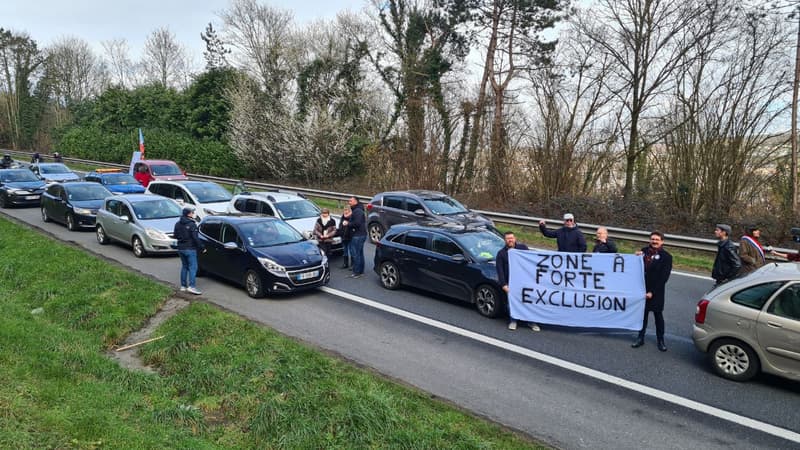The establishment of low emission zones (ZFE) to combat air pollution in large cities is finding strong opposition from the population. Main fear: an expansion of social and territorial inequalities, according to an online consultation of the Senate, from April 17 to May 14, the results of which were announced on Thursday, May 25.
Record number of responses
Never before has a Senate consultation with the public collected so many opinions: more than 51,300 responses in less than a month. I have never received so many negative reviews before.
“This success, in quotes, testifies to the many concerns that this device generates among the French, even if it is a consultation based on the principle of volunteerism and not a representative survey,” the senator from the Alps explained to the press. -Maritimes Philippe Tabarot (LR), rapporteur for the control mission on the ZFE, which is due to deliver its conclusions in mid-June.
In total, 86% of the people and 79% of the professionals who responded to the twenty questions asked by the senators said they were opposed to the deployment of EPZs. Among those surveyed, 93% are individuals and 7% professionals.
“This is a technocratic measure that also creates a real break in equal access to the city center depending on whether or not you are wealthy,” we read among the testimonies.
The law provides for a generalization of ZFEs in France by 2025 in the 43 agglomerations with more than 150,000 inhabitants. To date, eleven metropolises, led by Lyon, Grenoble and Paris, have their ZFEs, but with different implementation schedules.
“We had the ‘yellow vest’ thing because we were touching the car. Here we are also touching the car, so we can’t help but see a similarity there,” but “we don’t want to get to that,” commented Philippe Tabarot. . “We really don’t want to create an additional social bomb when there are already quite a few.”
Lack of alternatives to the private car
Among the findings of the consultation, the results of which were analyzed by a data specialist, the further a respondent lives from the center of an agglomeration, the more they tend to be unfavorable to establishing an EPZ. Thus, only 8% of the inhabitants of the rural communes are in favor compared to 23% of the inhabitants of the city center.
Having an alternative to the car also influences the responses, with only 16% of respondents believing that they have enough alternative solutions.
Finally, sentiment varies greatly from one socio-professional category to another, 25% of executives are in favor of ZFIs compared to 11% of employees and 4% of workers.
The first obstacle to the deployment of EPZs lies in the cost of acquiring clean vehicles, considered too high for 77% of citizens, given the insufficient accessibility of metropolitan areas from peri-urban or rural areas (51%) and the lack of alternative transport offers (42%).
Despite the long-term threat of a €68 fine, 83% of people do not plan to change vehicles to go to an EPZ.
Changing cars and promoting “modal shift”
The Senate’s “flash” mission on the acceptability of EPZs has held more than forty hearings since March.
“We see that today particularly proactive cities have set quite tight agendas and are forced to back down. We are no longer in a political divide,” admitted Philippe Tabarot.
On the largely negative sentiments of citizens, the senator hopes to “find a ridge line.” “We cannot fail to take into account the figures we have, but we cannot fail to take into account the imperative of public health,” estimated the elected official, for whom it seems “obvious” that there is a “desynchronization between the calendar (ZFE , editor’s note) and the progress of alternatives to the car”.
The priority is therefore, according to him, “to move towards modal change, towards public transport, because 40 million electric vehicles will not solve the problem of car congestion”.
Source: BFM TV


